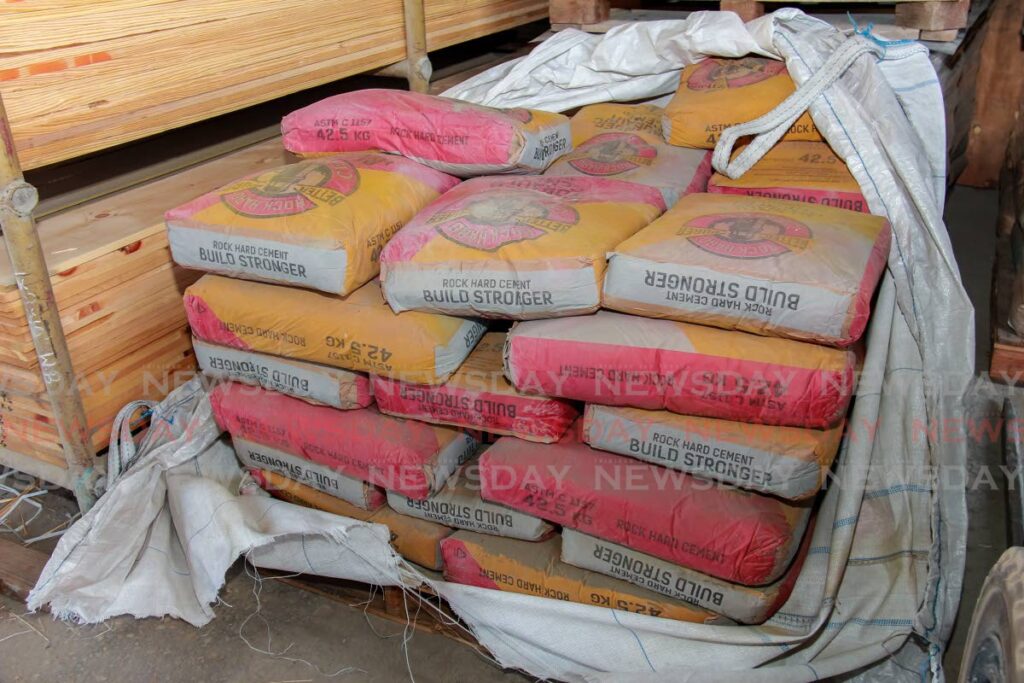Rock Hard Cement asks for lower duties to resume operations in Trinidad and Tobago

CEMENT distributor Rock Hard Cement Ltd has asked for a standard rate of import duties of five per cent to be applied so it can resume operations in TT, it said in a release published in the local newspapers on Wednesday.
The release said while the rate of duty for “other hydraulic cement” will be significantly reduced – from 50 per cent in 2021 to 20 per cent in 2022 – the rate would still be much higher than the rates of imports across the Caribbean.
“We wish to advise all our customers that unfortunately this rate of duty is still 400 per cent higher than the maximum rate of duty paid on imports of Rock Hard Cement across the Caribbean,” the release said.
“We hope that in the future Trinidad will apply the standard rate of duty of five per cent to imports of Rock Hard Cement so that we could resume our operations in Trinidad and provide our loyal customers with the quality of cement they have come to expect.”
In 2019 the Caribbean Court of Justice ruled that Rock Hard and its product, an extra-regional cement classified by the Caricom Council for Trade and Economic Development (COTED) as “other hydraulic cement” would be subject to a 0-5 per cent tariff as opposed to a Common External Tariff (CET) levy of 15 per cent for cement classified as “building cement (grey).”
Last month government agreed to a revision of the quota and import licensing regime for grey building cement and other hydraulic cements for 2022, increasing the quota for imports from 75,000 tonnes to 150,000 tonnes. This was a measure to keep prices affordable after monopoly producer Trinidad Cement Ltd announced an eight-15 per cent increase in its cement products.
At a special COTED meeting it was requested that the CET tariff should be suspended and the rate of duty increased to 20 per cent as opposed to an increase of 50 per cent experienced in 2021.
Rock Hard Cement managing director Ryan Ramhit said when he entered TT’s market in 2016 the CET tariff was zero but it has increased to the point where it is no longer feasible to do business in TT.
“After 2016 government raised the tariff to five per cent, which they were in their right to do and we had no problem with,” Ramhit said. “I based my business on that 0-5 per cent rate. The rate for this year, and the fact that I was not allowed to bring in shipments through Caridoc does not make it feasible to continue business in TT. It is like the government just went all out to cripple my business.”
He added that other countries in Caricom have been supportive of Rock Hard and its need to operate within the 0-5 per cent rate.
For example, one of the fiscal measures taken in the 2021 Guyanese budget was a reduction of import duties on industrial-grade cement from 15 to five per cent.

Comments
"Rock Hard Cement asks for lower duties to resume operations in Trinidad and Tobago"